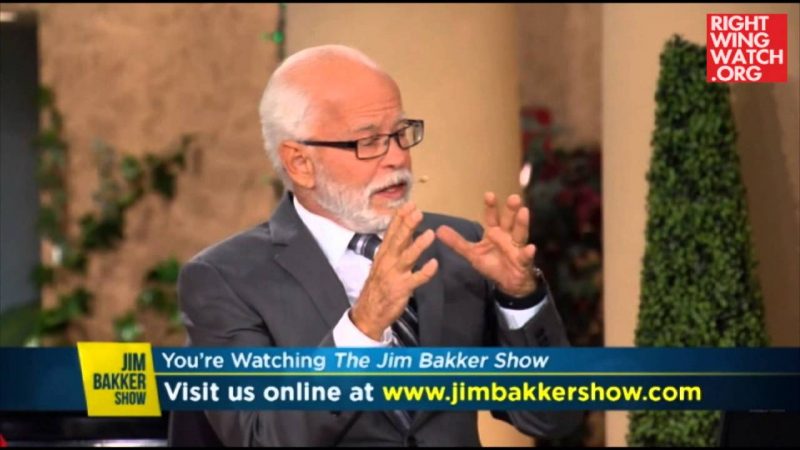Last night, Rachel Maddow dedicated a segment of her program to discussing the New Apostolic Reformation and its ties to Rick Perry as well as a follow-up segment with Forrest Wilder, author of the excellent piece on NAR in The Texas Observer – also, if you watch carefully, you will recognize lots of our videos:
Visit msnbc.com for breaking news, world news, and news about the economy
For all the recent talk about the New Apostolic Reformation, one of the issues that has largely gone uncovered is just what it means to be an “apostle” within this movement. I have recently been reading C. Peter Wagner’s “Apostles Today: Biblical Government for Biblical Power” in which he helpfully sets out his definition:
An apostle is a Christian leader, gifted, taught, commissioned, and sent by God with the authority to establish the foundational government of the church within an assigned sphere of ministry by hearing what the Spirit is saying to the churches and by setting things in order accordingly for the growth and maturity of the church and for the extension of the kingdom of God.
Wagner also explains that there is no such thing as “self-appointed apostles” because all apostles are appointed by God. But that creates a bit of a dilemma for those trying to determine who are actual apostles versus those who are false apostles and so Wagner offers a rather ingenious way to tell the difference:
God’s decision to make an individual an apostle must be recognized and affirmed by real people. If someone says, “God has called me to be an apostle,” but no one else agrees, then I have to doubt whether that person has accurately heard from God.
Now, if that logic seems rather circular to you, Wagner also offers up a list of “12 characteristics that are displayed by many (if not most) apostles,” though he is careful to explain that not all apostles have all 12 characteristics.
But, as a basic rule of thumb, seeing Jesus, performing miracles, suffering persecution, casting out demons, and fighting witchcraft are among the characteristics that a NAR apostle might posses:
1. Seeing Jesus personally. Of course the original 12 saw Jesus, but so did Paul, when Jesus appeared to him on the Damascus Road, and as he indicated in 1 Corinthians 9:1: “Am I not an apostle? Am I not free? Have I not seen Jesus Christ our Lord?” According to an informal survey of the apostles whom I know today, about 20 percent have actually seen Jesus personally.
2. Performing supernatural manifestations such as signs and wonders. “Truly the signs of an apostle were accomplished among you with all perseverance, in signs and wonders and mighty deeds” (2 Cor. 12:12). Almost every apostle I know has seen physical healing in their ministry, but not many have seen mass healings through the casting of their shadow as did Peter (see Acts 5:15). The application of this, therefore, might well be mostly a matter of degree.
3. Planting churches. “According to the grace of God which was given to me, as a wise master builder I have laid the foundation and another builds on it” (1 Cor. 3:10). While planting churches is a very important apostolic characteristic (one that David Cannistraci even included in his definition above), not all apostles have a church-planting ministry.
4. Appointing and overseeing local church pastors (or “elders”). Paul and Barnabas planted churches, and then returned and “appointed elders in every church, and prayed with fasting” (Acts 14:23). Paul instructed Titus, a member of his apostolic team in Crete, to “set in order the things that are lacking, and appoint elders in every city” (Titus 1:5).
5. Settling disputes in the church. The Corinthian believers were at each other’s throats. Paul wrote, “Now I plead with you, brethren, by the name of our Lord Jesus Christ, that you all speak the same thing, and that there be no divisions among you, that you be perfectly joined together in the same mind and the same judgment” (1 Cor. 1:10). Apostles are frequently called upon to bring resolution and unity to division.
6. Applying discipline, including excommunication. “It is actually reported that there is sexual immorality among you, and such sexual immorality as is not even named among the Gentiles—that a man has his father’s wife! … In the name of our Lord Jesus Christ, when you are gathered together, along with my spirit, with the power of our Lord Jesus Christ, deliver such a one to Satan for the destruction of the flesh, that his spirit may be saved in the day of the Lord Jesus” (1 Cor. 5:1,4-5). Denominational pastors are rarely equipped to take this kind of drastic action. Apostles, however, have few inhibitions about doing it when needed. Sadly, I have found it necessary through the years to dismiss or to force the resignation of several members of ICA.
7. Providing spiritual covering for other leaders. Paul did this. Here are two examples: “I commend to you Phoebe our sister, who is a servant of the church in Cenchrea, that you may receive her in the Lord in a manner worthy of the saints, and assist her in whatever business she has need of you” (Rom. 16:12). And, “Now if Timothy comes, see that he may be with you without fear; for he does the work of the Lord, as I also do. Therefore, let no one despise him. But send him on his journey in peace” (1 Cor. 16:10-11).
8. Suffering physical persecution. “For I consider that I am not at all inferior to the most eminent apostles … From the Jews five times I received forty stripes minus one. Three times I was beaten with rods; once I was stoned; three times I was shipwrecked; a night and a day I have been in the deep” (2 Cor. 11:5,24-25).
9. Attracting and distributing financial resources. “All who were possessors of lands or houses sold them, and brought the proceeds of the things that were sold, and laid them at the apostles’ feet; and they distributed to each as anyone had need” (Acts 4:34-35). Most apostles have access to the financial resources necessary to implement the vision that God has given them.
10. Casting out demons. “So that even handkerchiefs or aprons were brought from [Paul’s] body to the sick, and the diseases left them and the evil spirits went out of them” (Acts 19:12). Not all apostles have deliverance ministries, though many do.
11. Breaking curses of witchcraft. Paul broke the spirit of divination (witchcraft) in Philippi (see Acts 16:1618) and directly confronted the occult sorcerer Elymas in Cyprus (see Acts 13:8-11).
12. Frequent fasting. As he displays his credentials as an apostle, Paul mentions that he fasted often (see 2 Cor. 11:27).








